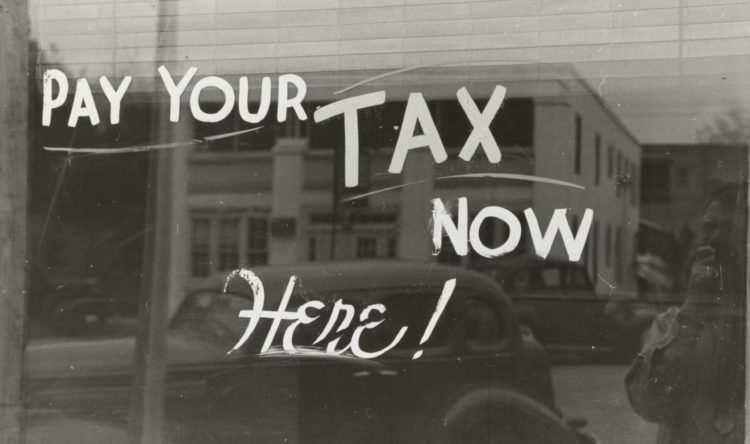Are diesels dead, desirable, or somewhere in between?
With diesel sales falling by over 20% and fully electric vehicle (EV) sales jumping by around 70%, it would seems that more and more of us are starting to question when, rather than if, they should ditch diesel for good.
Sponsored by Hitachi
In fact, as those who have made the switch to electric will tell you, although still relatively pricey to buy and insure, pure EVs have much to recommend them. They produce zero emissions locally, they’re quiet, nippy (thanks to the immediate torque of electric motors) and escape the Congestion and Clean Air Zone charges. And, thanks to low cost ‘fuel’, fewer moving parts and a range of government backed tax breaks and incentives, they can be much cheaper to run than comparable international combustion engine (ICE) vehicles.
Bearing this in mind, the writing appears to be on the wall for this once loved fuel. But have reports of the death of diesel been somewhat exaggerated? Does diesel still make sense for some, and if so, for how long?
Staying the distance
If you mostly make short to medium trips in urban areas and have charging facilities at home and/or work, an electric vehicle makes a lot of sense. However, if you don’t have the charging facilities, or need to make frequent long-distance trips, then diesel still has a lot to offer. Currently, a fuel-efficient diesel can easily travel 500+ miles plus and then be refuelled in a just few minutes in every town, village or service station. On the other hand, despite recent improvements in EV range and an expanding charging infrastructure, range anxiety is still an issue for many motorists.
Efficiency
Although hybrids and PHEVs have a much greater range than fully electric vehicles, most are still inefficient in comparison to diesel when it comes to long-distance motorway driving. This is, at least in part, because of the extra weight of carrying batteries and two motors (electric and ICE). For the same reason, they also tend to cost more to buy.
Petrol engine technology has also seen improvements but, especially in larger vehicles, diesel still comes out on top. This means that if an EV doesn’t suit your driving habits, and you clock up 20,000 miles or more a year, sticking with diesel could be the most financially savvy choice.
Pulling power
Thanks to their superior torque, diesels also outshine petrol by offering plenty of mid-range power for overtaking and safely joining fast-moving traffic from slip roads. It also means plenty of pulling power, which is why diesels are still the engine of choice if you want to tow anything. Likewise, if you go off-roading, or just like four-wheel drive/SUVs, diesel is still supreme (although this may change in the future as manufacturers bring out more electric 4x4s).
Of course, many people who drive long distances prefer the comfort and space provided by larger vehicles. Again, diesels win over petrol because they can they better handle the weight and operate more efficiently than petrol engines, which often need to be revved (expensively) to handle larger loads.
CO2 & VED
Thanks to their higher levels of efficiency, diesels emit less CO2 per mile than petrol, which means lower VED (that’s road tax to most of us). What’s more, although diesels pay a higher first year rate than their petrol counterparts, the cleanest diesels, those meeting the Real Driving Emissions Step 2 (RDE2) standard, were recently made exempt from this charge.
It’s worth bearing in mind that while pure EVs produce zero local emissions, they depend on power which is partly produced by burning fuels that produce CO2. Moreover, contrary to what you might expect, EVs are only slightly more efficient than diesels at the conversion of energy into movement.
Pollution
New diesels are all Euro 6 compliant, which means much lower levels of nitrogen dioxide (NO2) and particulates/soot emitted than previously. However, it is also true that the diesel particulate filter may become clogged if you only drive in urban areas and don’t do any motorway driving.
Some manufacturers such as Range Rover and Hyundai, are bringing out mild hybrid (MHEV) diesels, which capture braking energy and increase the efficiency (and lower the emissions) of diesels still further, especially around town.
ULEZ & Clean Air Zones
Precisely because they are cleaner, Euro 6 diesels are exempt from charges in London’s new Ultra Low Emission Zone (ULEZ) and any of the currently proposed Clean Air Zones (CAZ).
However, a few London boroughs such as Islington, Camden, Merton and Hammersmith and Fulham do charge a parking supplement for all diesel cars, regardless of Euro level, and Oxford is proposing to ban all ICE vehicles from the city centre in a few years’ time.
Choice
If you like choice, then diesel may be irresistible. Although this will change over the next few years, there are many more diesel models currently available than electric, especially when it comes to larger vehicles.
Resale Value
While it’s true that, as a result of the trend away from oil burners, diesels are beginning to lose some of their once rock-solid resale value, the decline is slow and larger diesels are still holding up well.
EV depreciation, which was once quite steep, has certainly improved. However, recent headlines about electric vehicles now retaining their value better than petrol or diesel are somewhat misleading, as the ‘electric vehicles’ that hold onto their value best are mostly hybrids and plug-in hybrids. Moreover, with an increasing number of new EV models, and rapidly improving technologies, there is likely to be a downward pressure on the resale value of the current crop of EVs.
The Company Car Driver
Whilst the 4% BIK diesel surcharge can be difficult to swallow, it should be remembered that RDE2-compliant diesels, such as the new Range Rover Evoque and Mercedes A-Class, B-Class and GLE, are exempt from both the surcharge and the higher first-year rate of VED on new diesel cars. And, because the Company Car Tax (CCT) system remains linked to CO2 emissions, you can still make savings with an efficient diesel, especially larger cars and SUVs, which tend to be much more fuel-efficient than comparable petrol models.
Fleets
In recent years, growing stigmatisation and an increasing tax burden has prompted most fleet managers to at least consider moving away from diesel. Although, whilst it is good news that businesses are embracing change and giving more consideration to the environment, the backlash against oil-burners may have obscured the fact that diesels still have a lot to offer. All the reasons that diesels were so popular in the first place, such as fuel efficiency, pulling power and long-lasting engines, are still true. And, with new diesels being so much cleaner than their predecessors, exemption from charges in the growing number of ULEZ and forthcoming CAZs is another positive factor to consider.
Diesels may no longer be the default choice for individual drivers or business fleet operators. That said, EVs and hybrids are not yet the new default either. In short, diesels will still have a place on Britain’s roads for some years to come.
If you need a little help deciding whether in your case diesels are dead, desirable, or somewhere in between, why not get in touch with our expert team who can help you weigh up all the relevant factors and make a decision that’s right for you.
Thanks to Hitachi Capital for this article – https://www.hitachicapitalvehiclesolutions.co.uk/blog/are-diesels-dead-desirable-or-somewhere-in-between






